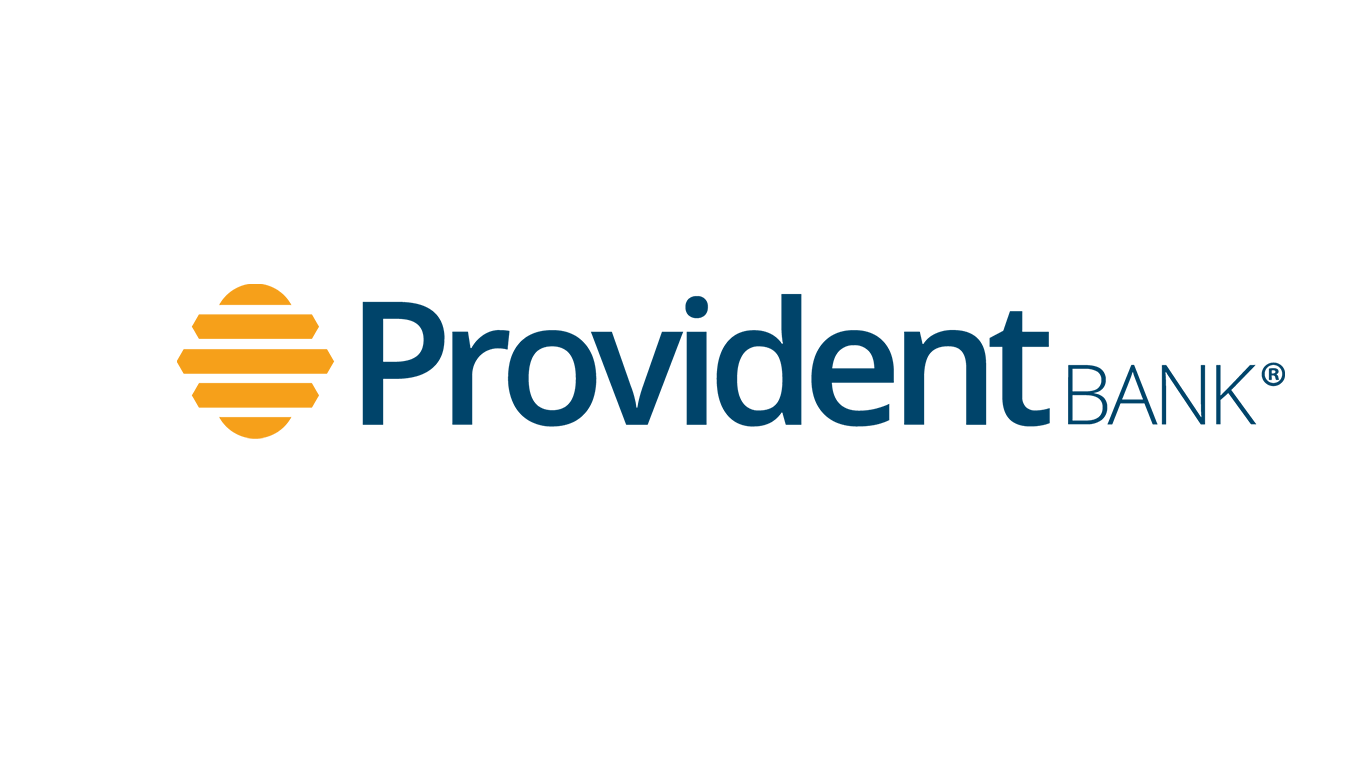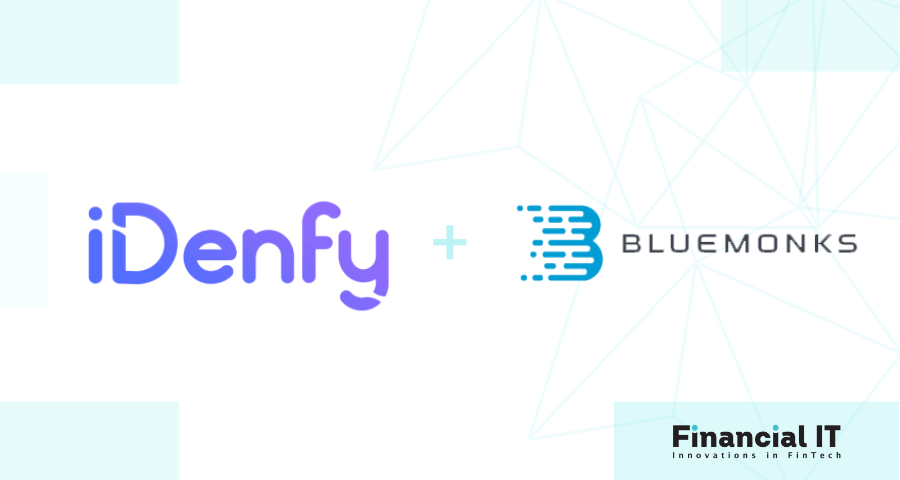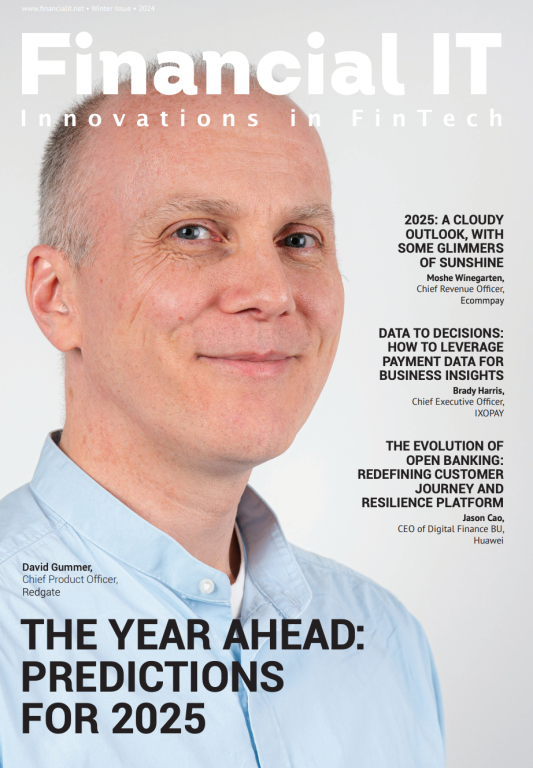Published
- 02:00 am

Sopra Banking Software (SBS), the global financial technology company that more than 1,500 financial institutions rely on to transform the way they operate digitally, today announced the appointment of Andrew Steadman as its Chief Product Officer (CPO). Steadman joins SBS after holding senior product leadership positions at Temenos, Fiserv, and Accenture, and serving as a Senior Director Analyst at Gartner.
As CPO, he will lead the company’s Software-as-a-Service (SaaS) product strategy and manage all business functions that contribute to product management and innovation.
Steadman has spent the last two decades carving out a reputation for leading transformational product strategies for large, global companies. He managed the products at Temenos and Fiserv as they transitioned to SaaS business models. During his 20-year tenure at Fiserv, he piloted the product management methodology that became the standard for software at the company. Steadman also spent three years as a Senior Director Analyst in Gartner’s Financial Services practice, leading the firm’s payments research focus.
In his new role as CPO at SBS, Steadman will reinforce the company’s SaaS product strategy. As the global financial services market continues to take on a SaaS-first mindset, Steadman will transition SBS’s internal architecture to align with the cloud products it delivers to customers. As part of this, he will introduce new product methodology and tooling, scale the company’s product team, and continue to foster innovation for new product development. Steadman will report to SBS Chief Product & Technology Officer Xavier Rebeuf.
“Andrew’s extensive experience in creating and implementing effective product strategies for global banking and finance companies will power him to play a pivotal role in SBS’s SaaS transformation. As we continue to innovate our products to keep our customers competitive in today’s market, we also need to align our internal growth, which is where Andrew comes in. I’m confident that he’ll make an immediate impact.”
said Xavier Rebeuf.
Sopra Banking Software powers the end-to-end digitization of more than 1,500 financial institutions globally with its cloud-native platforms, Sopra Banking Platform and Sopra Financing Platform. The company’s technology offers a composable-based approach to digitization, so financial institutions and lenders can transform at scale without disrupting their existing infrastructures.
“The next chapter of banking and finance is here and SBS is leading the way for banks and other financial institutions with its technology. But it’s clear that change is also on the horizon for the company in order to transform with its customers. It’s an exciting time to join the executive team as we drive forward this change and lay the foundation for the next era of digital business.”
said Steadman.
Steadman joins recently appointed Chief Operating Office Tobias Unger and Chief Commercial Officer Raouf Mhenni as part of SBS’s larger C-suite expansion.
Related News
- 07:00 am

Building upon its initial enrolment in the Mastercard Engage Programme, Episode Six (E6), a leading global provider of enterprise-grade payment processing and ledger infrastructure, announced it has been selected to join the Mastercard Engage Programme for its instalments solution in Europe.
Despite the challenging economic environment and new regulatory requirements adding pressure to the instalment market, the demand for buy-now-pay-later (BNPL) solutions continues to grow. And amid growing financial pressures, more customers welcome the ability to break payments into smaller and more manageable instalments.
Against this backdrop, E6 saw an opportunity to leverage its flexible, cloud-native TRITIUM® platform to enable incumbent issuers to launch new and modern instalment solutions such as BNPL. These new solutions complement issuers’ current offerings without disrupting services on their existing infrastructures.
In turn, traditional issuers can offer these new instalment solutions to banks, enabling them to provide tailored instalment offerings to their customers, thus creating new revenue streams. E6 is one of the few in the market that offers a ready-to-launch payment instalment solution that enables BNPL, instalment cards and loans—and that’s just the surface.
Mastercard Engage makes it simple for partners to build, launch and grow payment solutions for Mastercard’s global network of customers and accelerate time to market for product innovation. Mastercard Engage includes a range of partners that each contribute different components and integration capabilities to enable seamless payment experiences. Participants in the Engage program also receive opportunities to boost their growth, gain access to exclusive resources and perks, and enhance their brand's visibility.
"We’re delighted that Mastercard has decided to include Episode Six's Buy Now, Pay Later technology on its Mastercard Engage platform,” said John Mitchell, CEO & Co-Founder of Episode Six. “We have strengthened our instalments offering to make it fit-for-purpose for financial institutions, providing a seamless, digital-first instalment lending experience that addresses the needs of their customers. Our inclusion in the Mastercard Engage platform reinforces our commitment to revolutionize the payment landscape and address the market's evolving needs.”
Related News
- 04:00 am

Finastra has today announced SYSTEX as a solution partner in Taiwan. SYSTEX will resell Finastra’s Kondor and Risk solutions, creating an offering that combines Finastra’s best-of-breed trading system with SYSTEX’s local expertise and broad technology services capabilities. The partnership will enable more banks in Taiwan to digitally transform and grow their businesses.
“SYSTEX is a market leader in integrated business solutions and technology services, and we are pleased to partner with them to fuel banks’ trading operations in Taiwan,” said Richard Zhu, Managing Director, Treasury & Capital Markets, APAC, Finastra. “Combining Finastra’s leading treasury solutions with SYSTEX’s broad and deep capabilities enables us to bring a comprehensive end-to-end offering to banks in Taiwan, which will fuel digital transformation and business growth for banks in this important market.”
Reese Chang, Vice President of SYSTEX Co., Ltd. said: "This partnership between SYSTEX and Finastra will showcase leading technologies, providing innovative and comprehensive financial information technology services and solutions. Fintech upgrades and transformation require vertical integration capabilities. Through this partnership, we are making a strategic breakthrough in the financial services sector.”
Finastra Kondor enables financial institutions to trade high volumes of treasury while offering the flexibility to support more complex derivatives, options, and structured trades. It can easily integrate with existing systems and applications, enabling simplification, lowering costs, and creating a single source of truth – all while ensuring that the organization remains compliant.
Finastra Risk is a fully automated, end-to-end solution that allows banks to manage risk, margin monitoring, balance sheet optimization, and regulatory reporting. With one intuitive dashboard and seamless integration with existing architecture, Risk provides a total risk management system that enables better performance, scalability, and visibility for timely and accurate decision-making.
Related News
- 06:00 am

"At Tonik, we are committed to providing our customers with the best possible digital banking experience. Our collaboration with Xendit is a significant step towards achieving this goal. By expanding our payment options and enhancing our ecosystem, we aim to empower Filipinos to take control of their finances with ease and confidence," Tonik Founder and CEO Greg Krasnov said.
“Xendit has emerged as one of the leading payment gateways in the country and the region — proving that they’re the best in class, tried and tested. That’s why our sister company, TendoPay, among other prominent companies, works with them too. We’re excited to partner with a fellow fintech start-up that has the same grit as Tonik to succeed,” Tonik Group Chief Financial Officer Todd Esposito said.
“We’re excited to democratize world class payments experiences for the everyday Filipino. Guided by the highest industry standards, we build infrastructure for the everyday products that consumers use — people taking out a loan from Tonik should be able to experience the same quality, scalability of services that someone does in the Western markets or anywhere else in the world," Xendit Chief Innovation Officer Yang Yang Zhang said.
Related News
- 02:00 am

Provident Bank, a leading New Jersey-based financial institution, recently welcomed Tom Mathew as First Vice President, Deputy Compliance Officer. In addition, Mr. Mathew serves as Deputy Compliance Officer for Provident’s insurance subsidiary, Provident Protection Plus, and as Chief Compliance Officer for Beacon Trust, Provident’s wealth management subsidiary.
Mr. Mathew is responsible for managing compliance and regulatory requirements for these respective business lines within the organization. In addition, he evaluates compliance risk to develop risk-based compliance testing of existing procedures and controls to identify, detect, and correct non-compliance. He also partners with senior management in developing and communicating training initiatives to inform staff and stakeholders about compliance requirements.
“I am delighted to welcome Tom to this important role,” said Mary Brown, Senior Vice President, Chief Compliance Officer. “As we continue to maintain the highest standards in risk management, regulatory compliance, and community service, Tom’s extensive knowledge in fiduciary risk management, regulatory practices, and due diligence will be instrumental as Provident grows,” added Ms. Brown.
Mr. Mathew has more than 20 years experience in corporate compliance, fiduciary risk management, and support function project management. Most recently, he was Vice President, Director of Compliance with HSBC Bank in New York. Prior to that, he served as Senior Compliance Officer with Euro Pacific Capital/Euro Pacific Asset Management in Westport, Connecticut. In addition, he held the position of Senior Compliance Officer with Digital Offering in Newport Beach, California.
Mr. Mathew attended the University of Phoenix, where he earned a Bachelor of Science and a Master of Business Administration.
Related News
- 08:00 am

New research from Economist Impact supported by Temenos finds that European banks are fighting back against competition from platform players, neobanks, and payment providers.
According to the study, “Challenging the challengers: Europe’s banks face the competition”, almost half (43%) are investing in fintech start-ups and a third (36%) are building their own greenfield digital bank or fintech company.
European banks are also migrating core banking systems to public cloud and SaaS in greater numbers than their counterparts in other regions. Over a fifth (21%) of European banks see the cloud as a strategic priority, ensuring their operations are agile and secure to compete with more nimble competitors. AI is also a key part of their technology investment strategy, particularly to improve the customer experience and support digital marketing, with three-quarters (75%) of European bankers believing that the banking sector will be significantly impacted by generative AI.
The report reveals European banks are more likely to view neobanks as their company’s biggest competitors in the next five years compared to other regions. However, payment players and technology providers continue to be top of mind, with payments being the space European banks predict new entrants will gain the most market share. HSBC recently launched Zing, a new multi-currency payments app to compete with the likes of Wise and Revolut.
Jonathan Birdwell, Global Head of Policy & Insights, Economist Impact, said: “Fintechs and neobanks took the lead in using new technologies to provide better customer experiences. European banks are now fighting back, emulating the way non-traditional players have used technology to reach consumers who had been underserved by traditional financial services, and to appeal to existing customers with support in managing their personal finances.”
Kanika Hope, Chief Strategy Officer, Temenos, said: “The competitive landscape is shifting. As neobanks and fintechs experience growing pains and face funding difficulties, Europe’s banks are taking advantage of the opportunities afforded by open banking by pursuing collaborations with their challengers to offer a wider range of better services to their customers. They are also investing in technology, using cloud-native banking platforms and SaaS to improve the customer experience and ensure their operations are agile and secure.”
Temenos, a trusted SaaS provider to 700 banks, recently launched end-to-end SaaS services for Retail, Business, and Corporate Banking with over 120 pre-configured products, processes, and 700 APIs, to enable banks to deploy software solutions in just 24 hours and significantly reduce modernization costs. The company also recently announced Temenos LEAP, a new AI-powered offering that helps banks modernize faster to the latest cloud-native Temenos technology.
Related News
- 08:00 am

iDenfy, a Lithuania-based RegTech company best known for its identity verification solutions, has announced a new partnership with BlueMonks, a Dutch anti-financial crime boutique specializing in end-to-end compliance solutions. This partnership is a pivotal step towards elevating security standards in response to the increasing frequency of financial fraud.
In the past decade, the world witnessed a concerning rise in Anti-Money Laundering (AML) breaches, reaching a staggering 16,150 cases globally. Notably, the United States led the pack with over 11,472 incidents per capita, equating to a startling 3.5 events for every 100,000 people. The Netherlands also faced 17 recorded AML events, securing a spot among the top 12 nations dealing with this global issue. Responding to these unsettling data numbers, BlueMonks, a prominent Dutch anti-financial crime boutique, took proactive steps to strengthen its Know Your Customer (KYC) operations to reduce potential risks arising from suspicious business activities that could lead to financial fraud, including AML.
In response to the evolving threat landscape, BlueMonks made a strategic decision to enhance the safety of its business clients and improve its overall performance. To achieve this, the company partnered with iDenfy, a leading RegTech firm specializing in KYC/AML and Know Your Business (KYB) solutions. BlueMonks primarily employs iDenfy's ID verification solution, crucial for global legal services and businesses to identify valid identities, prevent fraudulent registrations, and thwart cyber attacks.
Currently, the registration process with BlueMonks consists of a few straightforward steps, and iDenfy has played a key role in simplifying the KYC process. This new partnership ensures a secure and smooth identity verification experience for BlueMonks' clients, enhanced by 3D liveness detection technology. According to the company, the onboarding process has become straightforward as iDenfy efficiently manages all administrative tasks.
However, this strategic collaboration goes beyond addressing historical technological gaps; it positions BlueMonks at the forefront of emerging threats. iDenfy met the specified criteria because of its extensive range of accepted ID documents. Additionally, the seamless integration with BlueMonks' internal system and white-label services was a crucial aspect of the KYC solution.
This collaboration not only addresses the immediate concerns posed by AML events but also positions the partners to anticipate and thwart future threats, ushering in a new era of trust and resilience in financial technology. Consequently, recognizing the critical importance of securing financial transactions and protecting sensitive customer information, BlueMonks is pleased to establish a robust partnership with iDenfy, aiming to deliver high-end security not only now but also in the future.
Mark van Wijk, Managing Director of BlueMonks, stated: "Choosing iDenfy as our partner is a strategic decision to leverage their expertise in KYC/AML solutions and enhance our security infrastructure to combat the growing challenges of financial cyber threats."
Domantas Ciulde, the CEO of iDenfy, added: "Our partnership with BlueMonks underscores the shared commitment to fortify financial cybersecurity. Together, we aim to provide high-end security measures that not only meet current challenges but also anticipate future threats in the dynamic landscape of financial technology."
Related News
- 03:00 am

Revolut, the UK’s leading fintech with more than 35 million customers worldwide, has today announced the launch of an advanced scam detection feature to help protect customers from card scams.
Revolut customers can now experience an added layer of security protection, on top of the technology already in place, to detect APP (Authorised Push Payment) scams, where criminals trick the user to get them to transfer money to another account.
Revolut’s new AI-scam feature uses sophisticated machine learning to detect if a customer is being scammed, and therefore break the ‘spell’ of the scammer before they send their money to the criminal. Built internally by Revolut’s financial crime team, the new feature can determine if there is a high likelihood that the customer is making a card payment as part of a scam, and if so, decline the payment. The customer is then protected from performing other similar payments and sent through a scam intervention flow in-app. During this phase, the customer needs to provide additional information about the transaction they were attempting, to check whether the customer is being guided by someone and is under the scammer's spell’. They are then also shown specific scam educational stories to prompt customers to think in-depth before they make the payment. Revolut can also redirect the customer into a chat with a Revolut fraud specialist who will then ask them further questions to determine if they are being scammed.
Since the launch of the card scam detection feature, Revolut has observed a 30% reduction in fraud losses resulting from card scams where money has been sent for investment opportunities.
David Eborne, Head of Fraud at Revolut, said: "We’re very excited to be launching our new AI-scam feature which implements advanced technology to interrupt fraudsters taking advantage of everyday people. We’ve invested heavily in the product to ensure that customers can continue to spend and send their money safely. For example, a growing number of banks are increasingly restricting or heavily limiting the ability to make card payments to crypto and investment websites. With this advanced feature, rather than completely block those transactions, we ensure that customers who want to perform legitimate payments continue to do so, but also intervene to protect those who are being guided by criminals to make fraudulent ones. We are giving our customers both freedom and security at the same time”.
Across its UK customer base in 2023, Revolut found that 60% of all of its reported UK scam cases originated from just three sources: Facebook, Instagram, and Whatsapp. Additionally, 33% of the total value of all money lost to scams began on Meta platforms across the same period. The use of Meta platforms as the primary originator of scams is only increasing, rising from 52% of all reported cases in the UK in the first half of the year, to 66% in the six months to the end of December 2023
The new AI card scam feature is live in the Revolut app and available to customers worldwide.
Related News
- 02:00 am

Ambitious kids expect to be working in new-age tech careers, and have fully flexible roles and bosses with a strong social conscience, according to new research from GoHenry, the prepaid debit card and financial education app for kids aged 6-18.
The insights into kids’ predictions on the future of work - gathered from nearly 480,000 UK GoHenry customers and a sample of over 2,000 young people aged 6-17 - indicate Gen Alpha and Gen Z will turn the traditional 9-5 on their heads by using emerging technologies, challenging employers on social issues such as diversity and choosing purpose over pay.
Generation AI driving demand for tech roles that didn’t exist a decade ago
As digital natives, young people are looking to the tech world for their future careers, with many roles being so new that they didn’t exist as standalone jobs just 10 years ago. Of these new-age careers, kids most want to become a social media influencer (23%), an app developer (8%), or a virtual reality (VR) developer (7%).
Even in more traditional jobs, emerging technologies will also become mainstream as young people anticipate that mobile phones or tablets will replace computers (35%), they will have robot assistants (23%), and be using virtual and augmented reality as part of their day-to-day work (23%)1.
Future workforce will prioritise purpose over pay but worry about job security
Growing up during Covid, the cost-of-living crisis and climate change have mobilised younger generations into action, with 42%1 of respondents saying they would rather have a job that positively impacted society but didn’t pay as well, than one that paid well but did not positively impact society.
Employers should expect to face extra pressure on key issues such as diversity and inclusion as 68% of Gen Alpha and Gen Z think businesses need to do more to provide solutions to social issues1, 65% believe businesses need to do a better job of making workplaces more inclusive and 60% think businesses need better representation in leadership positions when it comes to gender and ethnicity.
Despite more than half (53%1) of Gen Alpha and Gen Z claiming they would quit if an employer didn’t deliver on its promises regarding social issues, these topics remain a source of anxiety for younger generations.
When asked what worried them most about their future job security, UK kids cited:
- The cost-of-living crisis (56%)
- The environmental crisis (50%)
- War and the state of the UK economy (both 49%)
- Lack of help from the UK government (46%)
- Lots of people getting unwell, toxic work culture and mental health (all 45%)
- Lack of financial education (43%)
Traditional 9-5 to become a thing of the past
A ‘job for life’ is set to be a thing of the past, with 43%1 of young people predicting they’ll have between 5-10 different jobs over their lifetime. Traditional working patterns will disappear too, with almost a third (31%) of Gen Alpha and Gen Z expecting flexible or compressed working hours. A quarter (25%) want a fully remote job, 23% crave unlimited holiday, 22% want a 4-day week, and a fifth (20%) don’t want set working hours at all1.
Side hustles also look set to stick around despite HMRC’s new ‘side hustle tax’. 31% of young people want to have a job with a regular salary and a side hustle to work on in their own time. When it comes to earning potential, a third (33%) of kids expect to be making at least £30,000 for their first full-time role, which is roughly in line with the median gross annual earnings for full-time UK employees.
This ambition looks to be on the cards for the next generation of workers, with GoHenry’s data showing that UK kids are making more money than ever before. In 2023, kids earned £168 million, an 8% rise on the previous year, and were paid an average of £9.52 pocket money per week, representing a 25% uplift.
Louise Hill, Co-founder and CEO of GoHenry, comments on the results: “At GoHenry, we’re all about empowering kids with the financial skills to thrive in any workplace - whether that’s in a traditional job, a new-age role, or running their own business. It’s inspiring to see younger generations so confident about what they want and don’t want from their future careers. Growing up amid Covid and the cost-of-living crisis, it’s unsurprising that so many young people have developed such strong views and employers must listen or risk losing out on top talent. ”
GoHenry customer, Isla, age 9, said: “I want to be a professional gamer or game developer and I attend a gaming academy every weekend to help me build the skills I need. I think I will need to use VR a lot so I can play and test new games. I want to be able to work from home so I can spend more time with my friends and family. I think it’s important that whatever you do has a positive impact on society. If you enjoy your job, money doesn't matter as much, especially if you are helping others."
Related News
- 09:00 am

Parlay, the first-of-its-kind small business loan readiness platform, today announces the close of $1.3 million in pre-seed financing led by Fenway Summer.
Other firms investing in the round include Hivers and Strivers Capital, Service Provider Capital, Capacity Capital, and Alumni Ventures, together with a follow-on investment from Techstars.
"This pre-seed funding enables us to continue fulfilling our mission: partnering with community banks and credit unions to extend more loans to the small businesses that form the backbone of our economy," said CEO of Parlay Alex Mcleod. "We're excited to continue this important work with strategic champions like Fenway Summer by our side."
"We are excited and proud to back Parlay. Small businesses drive the American economy; access to capital drives small businesses. Parlay's loan readiness platform is an innovative approach to helping banks and credit unions better access and underwrite those critical small business customers" said Raj Date, managing partner of Fenway Summer, the Washington, D.C.-based venture capital firm focused on early-stage fintech investing, "But what we are most excited about is supporting a founding team that is as ambitious, talented, and passionate as this one."
Parlay was selected to participate in The PenFed Foundation Veteran Entrepreneur Program Fall 2023 Cohort. The program exclusively supports veteran and military spouse entrepreneurs building highly scalable startup companies — ranging from the idea stage through to Series A and beyond.









